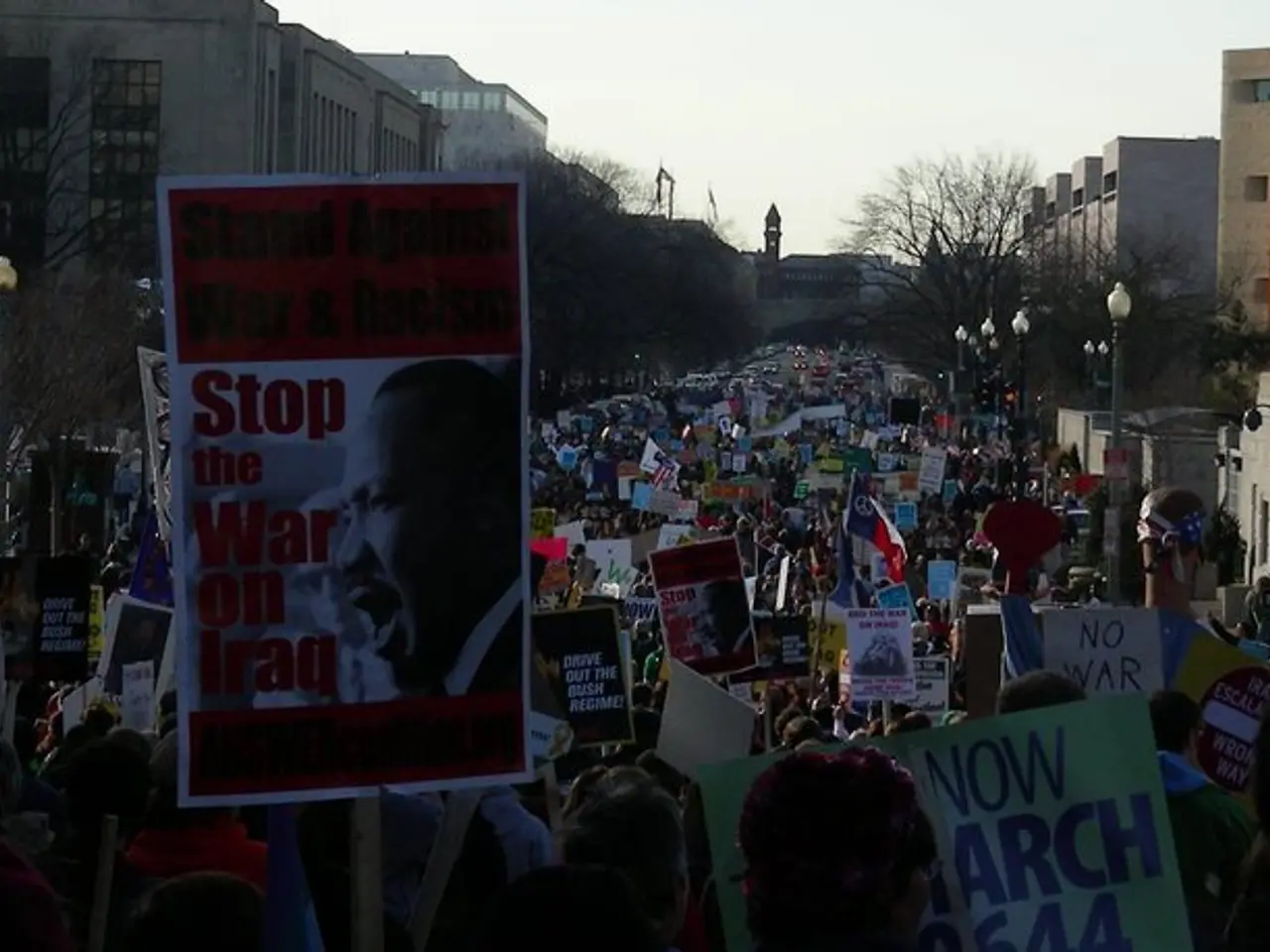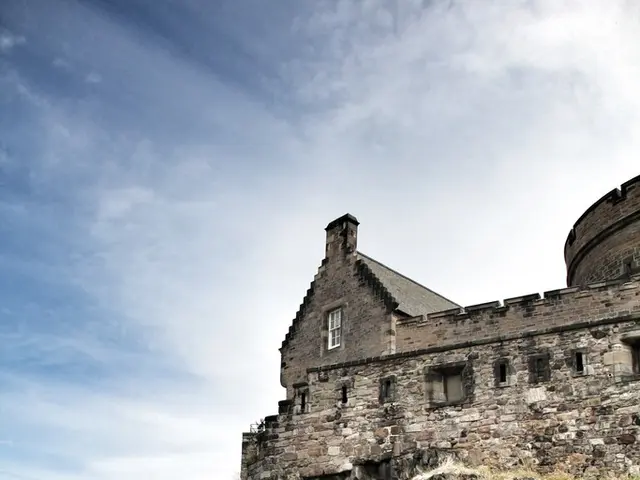Unrest erupts during demonstrations in Serbia - Escalating Aggression in Serbia
Protests in Serbia Escalate as Clashes with Police Continue
In the heart of Serbia, the capital city of Belgrade has become a hotbed of unrest, as protests against corruption and government negligence have intensified since August 2025. The demonstrations, led by students and civil society groups, first erupted following a fatal train station canopy collapse in November 2024, which claimed the lives of 16 people and was blamed on corrupt infrastructure projects under President Aleksandar Vučić's administration.
Since the initial outbreak, daily clashes between protesters and police have been a common sight in Belgrade and Novi Sad, the country's second-largest city, with the unrest even spreading to smaller towns. These confrontations have been marked by numerous allegations of excessive force and brutality by the police, including beatings, arbitrary arrests, and the use of unmarked vehicles for detainee transport.
Videos circulating online have shown detainees kneeling before police in Novi Sad and protesters being severely beaten, deepening public outrage. Supporters of the ruling Serbian Progressive Party (SNS) have also been accused of attacking peaceful demonstrators.
In response, police have deployed riot control vehicles and detained hundreds during anti-government demonstrations, particularly in Belgrade and Novi Sad, in an attempt to suppress the unrest. President Vučić has publicly praised the police's conduct and promised bonuses, while accusing the protests of being Western-inspired attempts to undermine his rule without providing evidence.
As the repression grows, the protests have expanded to smaller towns like Valjevo, where cases of police brutality and violence against protesters—including minors—have been documented. Local SNS offices have been attacked by protesters, and some violence by demonstrators has been justified as self-defense against state aggression.
International actors, including UN human rights experts, have strongly condemned the Serbian government's crackdown on the student-led movement and called for respect for human rights, academic freedom, and peaceful civic dissent.
The latest phase of the anti-corruption protests in Serbia is characterised by: - Daily violent clashes between police and demonstrators in Belgrade, Novi Sad, and smaller towns. - Widespread allegations of police brutality and repression. - Expansion of protests from students to broader society demanding government accountability and early elections. - Government denial of wrongdoing, claims of foreign interference, and endorsement of police action. - Growing international concern over human rights abuses related to the protests.
Recently, security forces prevented protesters from marching to the headquarters of the SNS in Belgrade, while conflicts were reported in Novi Sad. As the situation continues to unfold, the international community will be closely watching developments in Serbia.
The Commission, the Council, and the European Parliament are closely monitoring the escalating protests in Serbia, with increasing concerns over human rights abuses and police brutality.
In light of the general-news headlines, the European Parliament has called for the government of Serbia to respect democratic principles, uphold international standards of law enforcement, and engage in meaningful dialogue with its citizens on the issues of politics and crime-and-justice.








